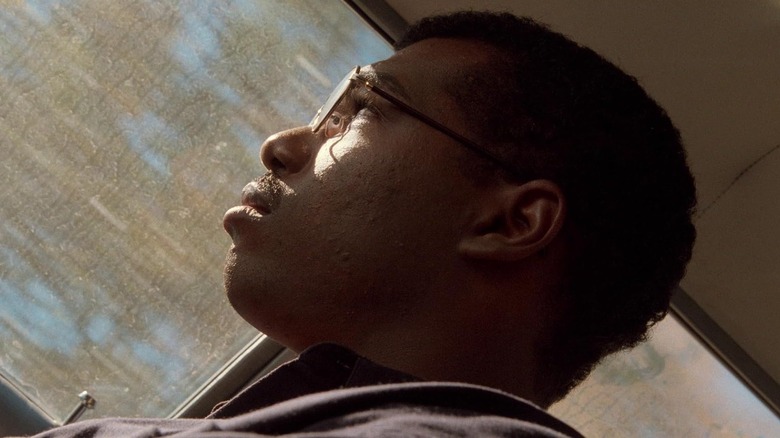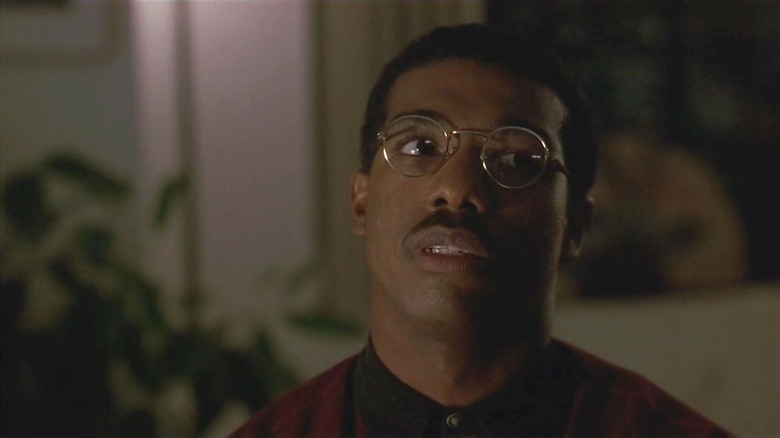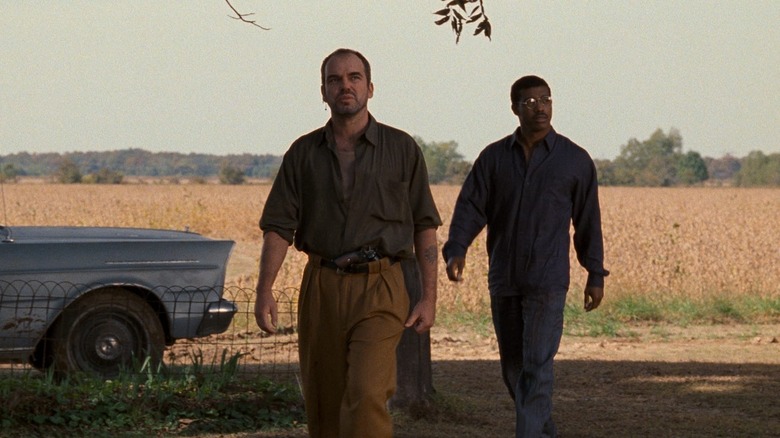One False Move's Director Thought One Of His Actors Was So Good At Playing A Villain, It Actually Hurt His Career
Michael Beach was in his late twenties and primed for a breakout performance when he landed the role of Pluto in Carl Franklin's "One False Move." This was not supposed to be that performance. It was a low-budget crime flick from a couple of unknown screenwriters named Billy Bob Thornton and Tom Epperson that was intended to go straight to video. But when L.A. Weekly journo Anne Thompson caught an early screening, she spread the word to her critic colleagues. Once the Los Angeles Times' Sheila Benson and the Chicago Sun-Times' Roger Ebert began raving about the film, the distributor, I.R.S. Releasing, opted for a small theatrical release. The movie wound up on multiple year-end top 10 lists and earned five Independent Spirit Award nominations (with Franklin beating out newcomer Quentin Tarantino for Best Director).
Strangely, only Cynda Williams managed to score an acting nomination for her portrayal of a drug-addicted lost soul who flees Los Angeles with a pair of stone-cold killers. While Billy Bob Thornton is impressive as the hotheaded Ray, Beach's horrifyingly icy Pluto is the character who sticks with you. He's a disturbingly methodical murderer who, in the opening scene, calmly throws a pillowcase over a young woman's head and stabs her repeatedly with a stiletto. As the film wears on, his capacity for emotionless violence only grows more unsettling.
It's a stunning performance that deserved loads of awards chatter, but according to Franklin, Beach's problem was that he was too scary. There's nothing seductive about Pluto. He's a force of quiet malevolence. And this might've delayed his breakthrough.
Who was that Black guy with the glasses?
When I spoke with Franklin for the film's Criterion Collection release, he lauded Beach's work, but remembered people being taken aback by his portrayal. "He understood that character very well," said Franklin. "I actually think, in some ways, for a minute it hurt him, because whenever I would discuss this movie with people who had seen it — with critics, interviewers, journalists — they would always say, 'Who was that Black guy with the glasses?'"
Beach's predicament was not unprecedented. As Franklin noted:
"[T]hat happened to a friend of mine, Andy Robinson, who played the Scorpio Killer in ['Dirty Harry']. I think it also happened to Steve Railsback earlier on when he played Charles Manson [in 'Helter Skelter']. Sometimes, the performance is so effective, it's hard for people to see you any other way for a minute. I think that happened with Michael, because Michael frightened people. He really did. I saw the movie a couple times when I went to theaters just to see how people were responding, and they would applaud when he was killed because they were scared."
It's time to give Michael Beach his due
Beach wouldn't be held back for long. He finally found his mainstream footing as Angela Bassett's cheating husband in Forest Whitaker's well-received adaptation of Tracy McMillan's bestseller "Waiting to Exhale" (that's his character's car Ms. Bassett sets on fire in the enormously popular gif). He risked getting typecast as an unfaithful heel by serving the same dramatic function in George Tillman Jr.'s "Soul Food."
Despite his undeniable good looks and powerful screen presence, Beach never became a leading man. But he has worked steadily in movies and television over the last several decades in projects as diverse as "Third Watch," "Tulsa King," and Barry Jenkins' phenomenal "If Beale Street Could Talk." He's as reliable a character actor as we've got, to the extent we've taken him for granted. He's got another Pluto lurking in him somewhere. Maybe now the world is ready for it.


